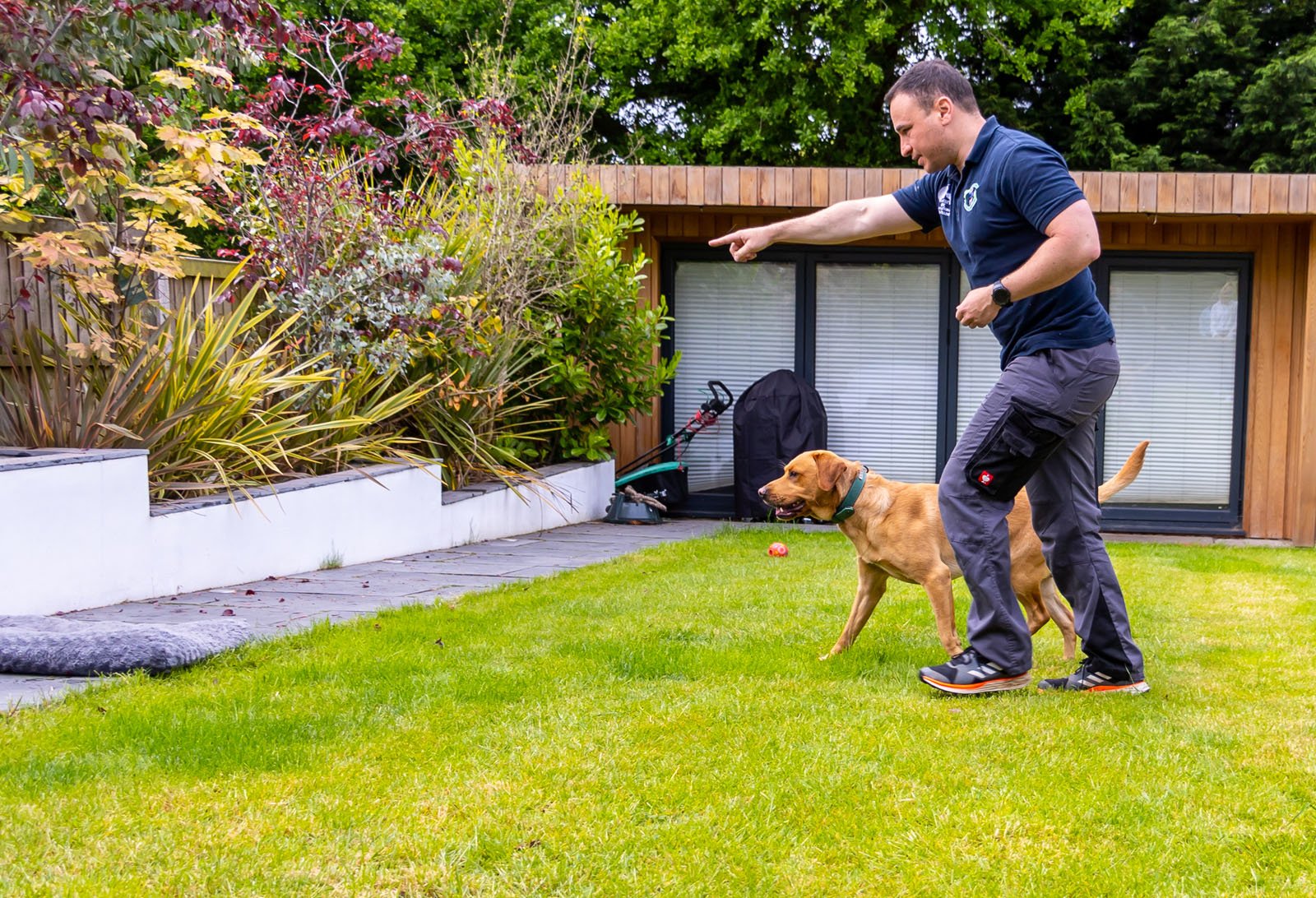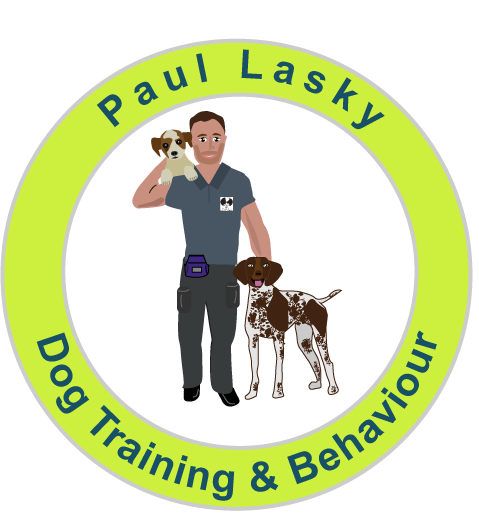
Choosing the right dog trainer guide
There are a lot of people offering dog training and behaviour services. But all these people will have a very wide and varied range of experiences and qualifications, good or bad. This page briefly aims to clarify what is available to you.
In general, for basic training you should be looking for someone with at the very least several hundred hours of experience under their belt in a range of settings. For behaviour problems, this should be several thousand hours. This would include a mixture of physical hands-on dog experience, scientifically proven study, shadowing mentors, attending courses and workshops, plus learning and practicing teaching other humans.
Therefore, a good place to start when looking for someone to help you train your dog or improve a behaviour problem, is to find out how many hours of experience they have, but also what type. Sure, it's great if they have been on some courses and certificates, but as you can see from my experience at the end of this article, going on courses is just 1 strand of many. Going on a few workshops sadly does not make someone a dog trainer. Nor does working with dogs for 25 years but using aversive methods (see below) mean that you are a good dog trainer.
Memberships
A good place to look is the ABTC website. This is an umbrella organisation that only allows organisations with assessed members to an agreed standard. Those standards include practical, written, interview and thus require a demonstration that the trainer has been in the sector long enough to have all the necessary skills required.
But don't rule out trainers that are not on the ABTC website, there are some brilliant trainers who are not members of the ABTC, who have been assessed by other associations and/or have years of good experience, You should still, when choosing them, be able to see demonstrations of their experience in all areas.
Get Clarification
You can always quantify with the prospective trainer if their wording is vague. For example, if someone advertises "I've always had dogs" you could ask them to clarify. Do they mean they had 5 German shepherds growing up or they bred hundreds of them and worked them? Even in the latter case, it is worth finding out if this experience is complimented by scientific study before deciding if they are the right person to be working with you and your dog.
Another example, driving a car is not the same as being a mechanic, so if someone were advertising that they walk and train dogs, you could clarify what percentage of their experience is walking and what percentage is training.
Puppy Parties
A similar logic would apply to puppy parties. A dog's personality is being shaped in those tender young ages; it is the easiest time to create behaviour issues. Puppy socialisation is therefore best carried out by qualified trainers. There is a lot more skill to it than meets the eye and just a few minutes of distressing experience could imprint reactivity issues for life.
Even at the hands of another friendly puppy, who didn't even realise they had scared your dog. Of course, anyone can supply this service, but logic would beg the question, why would you not get a dog trainer to do this.
“But my friend said or The TV Show said”
A word on taking advice from friends, family, someone on the street, at the park or generally anyone who has only experienced a few dogs. They will only be able to give you advice on what worked for them with their dogs. This probably won’t apply to or work on your dog.
Similarly, TV shows are edited to show that the training worked in a half an hour episode, by all means watch and enjoy them as entertainment. But that is all they are, entertainment. Dog training just like any other skill in life takes time. TV producers tend to gravitate towards apparent quick fixes often with aversive methods, as it makes the best TV. You would not attempt a medical procedure on a family member after watching Holby City, and whilst with dog training the stakes are lower, the analogy is near identical.
Training methods used
Another thing worth finding out is the trainer's methods. Are they positive? Generally speaking, Positive would mean using methods that do not expose the dog to unpleasant (aversive) things. What might be considered aversive? I can suggest the following list of things I would not use, as I would consider them aversive: Choke chains, prong collars, electric shock collars, yanking the dog by the neck, spraying the dog in the face, routinely shouting at the dog.
Yes, we can all get frustrated occasionally, we are all human and will occasionally tell the dog off. However, we do not need to use this as routine training methods, as there are professionals available who can show you how to train your dog without these tools. You will obviously need to decide yourself whether you go with a trainer that uses positive reinforcement or whether you are happy for someone to come and apply those aversive tools to an animal member of your family..
As a rule of thumb, I would generally say, that if you are questioning something, ask yourself, would you do this to a child and if the answer is no, then do not do it to your dog.
To give you a point of comparison here is my approximate hours experience:
Physical hands-on kennel experience 8000 hours (including stressed dogs with behaviour issues, dog on dog introductions, rehoming dogs, intaking dog, assessing dogs). In that time the centre rehomed over 3000 dogs and I was exposed to or worked with a large % of them).
121 experience working / training dogs: 3000 hours
Scientific study: 250 hours (I am student behaviourist level 5)
Shadowing mentors: 200 hours (including shadowing many APDT, UK members)
Courses and workshops: 100 hours
Volunteering / dog walking: 200 hours
Assessed memberships APDT, UK, ABTC, Dog Training Charter and DogAid
Training methods used
On top of all this experience, I also have a network of dog training mentors to ask something when I need to know more about a subject or don't know something off the top of my head. Yes, sometimes a professional might not know something and need to find out. This is part of being a fit and proper professional, so beware anyone who says they know everything about a subject or only has 1 method at their disposal. A good dog trainer should be able to flex and mould with the dog and owners at hand.
Below is a very famous chart which plots the knowledge level of someone working in a complex field. This can apply to more obvious professions like doctor's and in this case canine behaviour. Canine behaviour is a complex mix of genetical traits, nature vs nurture, experience, hormonal biochemistry, medical causation and lots more. Once you realise how many of these areas are relevant, it soon becomes apparent that training and behaviour can even be more complex than medicine. Animal behaviour even more so, as they cannot speak to us.
A dog trainer should therefore be able to demonstrate at least some good awareness of these areas if not a good working knowledge and the ability and resources to go and find out through various means the bits they do not know.

